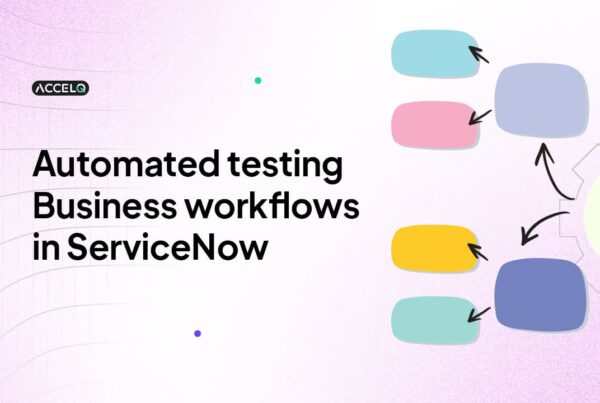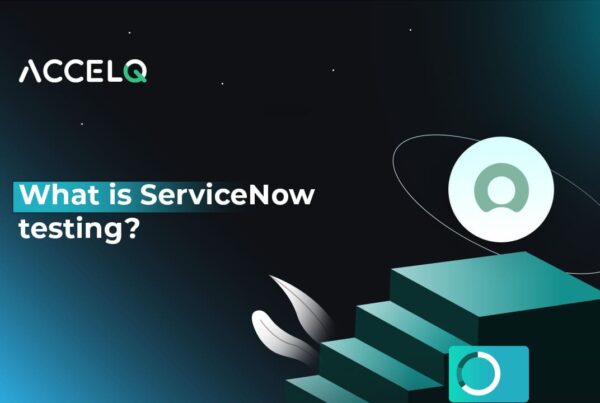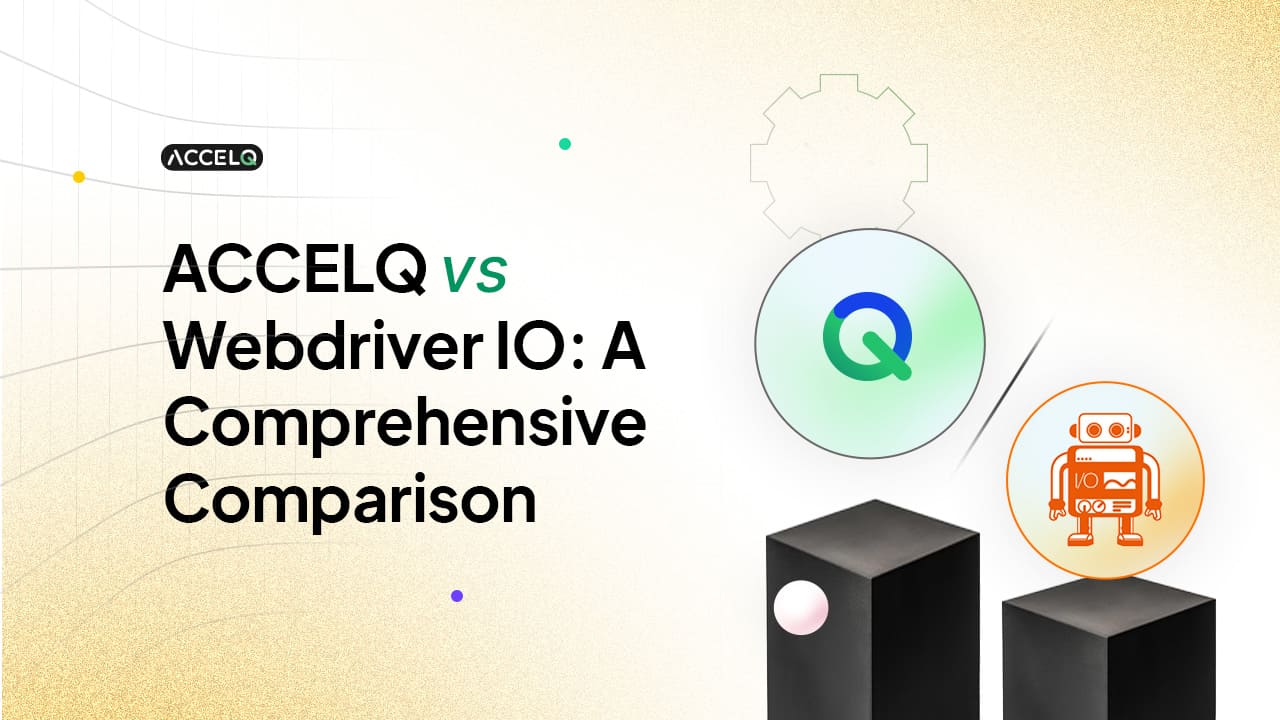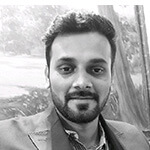ACCELQ vs Webdriver IO: Making The Best Choice

ACCELQ and Webdriver IO are popular test automation tools used by businesses to automate the testing of their applications. There are many similarities between the tools. Also, there are striking dissimilarities that one must be aware of before making a buying decision. Let's compare the features of ACCELQ and WebdriverIO, and understand the suitability of each tool in testing applications.
ACCELQ
Recognized as a leader in The Forrester Wave™ for Continuous Automation Testing Platforms, Q4 2022, ACCELQ revolutionizes test automation with its AI-powered, no-code platform built on a cloud-native architecture. Key features of the platform include -
- Unified platform for web, mobile, API, database, and packaged apps.
- Facilitates rapid creation and deployment of automated tests, reducing time-to-market.
- Minimizes maintenance efforts through self-healing autonomic capabilities.
- Integrates seamlessly into DevOps and Agile methodologies, enabling continuous testing.
- Facilitates in-sprint automation to accelerate delivery cycles and improve software quality.
- Integrates smoothly into CI/CD pipelines, providing continuous feedback and traceability
- Built-in Test Management, Version Control, and Governance
- AI-Based Automated Test Case Generation and Data Planning
- Provides intuitive visual tools for designing and validating business processes.
Strengths
- Industry-first autonomics-based automation platform delivers up to 7.5x productivity and over 72% savings
- Powerful AI capabilities
- Dedicated professional support
- Designed for high efficiency and ease of use
Pricing model
- Flexible plans to suit varied testing needs
- Individual plans for web, mobile, and API
- Unified package that includes Web + Mobile + API + Desktop & more
- 14-day free trial on all plans
WebdriverIO
WebdriverIO is an open-source automation test platform designed to test web and mobile apps. Here are the key features of the platform include:
- Supports testing across browsers.
- Works seamlessly with Selenium WebDriver.
- Framework agnostic- works with various testing frameworks like Mocha, Jasmine, and Cucumber.
- Supports visual regression testing to detect changes in the app UI over time.
Strengths
- Highly flexible and adaptable to various testing needs.
- Easy to use, even for those new to automation testing.
- Large and active community support.
- Large number of plugins and integrations available to meet specific requirements.
Pricing Model
- Open-source and free to use.
- There may be associated costs on cloud testing, CI/CD tools, professional support and training, etc.
ACCELQ vs Webdriver IO: Feature-wise Comparison
| Feature | ACCELQ | WebdriverIO |
|---|---|---|
| Platform Nature | Comprehensive enterprise-level test automation platform | Must be constructed from the ground up, involving several weeks of initial setup and continuous maintenance |
| Programming Requirements | No coding required; supports the entire team in automating without programming knowledge | Requires mainstream programming languages such as JavaScript, TypeScript, etc. |
| Programming Requirements | No coding required; supports the entire team in automating without programming knowledge | Requires mainstream programming languages such as JavaScript, TypeScript, etc. |
| Test Asset Management | Maintains referential integrity across test assets with built-in collaboration and management for Smart Test Plans & Governance | Manual and labor-intensive process; long-term success relies on team discipline and technical expertise |
| Element Capture Technology | Advanced element capture technology with AI-driven self-healing capabilities | Utilizes id, name, CSS, XPath, etc.; needs technical knowledge to manage complex and dynamic elements |
| Reporting | Provides dynamic live result views with actionable reports to trigger reruns | Console-based reporting or requires external integrations like spec, allure, junit reports, etc. |
| Complexity Management | No coding required regardless of application complexity; allows the entire team to automate without programming skills | Even simple conditional statements require programming |
| Scalability and Maintenance | Accelerates test development and significantly reduces maintenance when scaling up automation | Test script development becomes complex and slow, and maintenance significantly increases when scaling up automation |
| Unified Automation Capabilities | Seamless, extensible approach for Web, Mobile, API, and Desktop in a single codeless flow | Limited unified automation capabilities; mainly designed for Web and Mobile automation; API and Desktop testing may have limitations and require programming skills, workarounds, and customizations |
| Test Management Platform | Comprehensive test management platform with end-to-end capabilities | No built-in test management capabilities |
| Vendor Support | Test assets are fully aligned with platform vendor releases; provides live updates on new releases by vendors | Static support; necessitates code and object locator updates for new features |
| Collaborative Environment | Cloud-based multi-user collaborative platform with in-built version control | Not inherently collaborative; requires integration with GitHub for version control |
Factors to consider when choosing between ACCELQ and Webdriver IO
While making a choice between ACCELQ and WebdriverIO for your testing process, the best approach is to consider various factors, including:
Project Requirements
The project requirement analysis includes - analyzing the test complexity and scope, the type of application to be tested, and integration with CI/CD pipelines.
- ACCELQ is best suited for projects that need end-to-end testing. . The platform works well for functional and regression testing. It supports web, API, and mobile testing, so if your project requires testing all or any of the application types then ACCELQ makes the right choice. Also, it integrates easily with CI/CD pipelines, bug tracking, and test management tools.
- WebdriverIO works well for projects that have basic business workflow automation and regression testing needs. . The platform is primarily designed for testing web and mobile apps. It supports integration with CI/CD tools, test management tools, and defect tracking systems through plugins. However, you need to manually configure it.
Team Expertise
Team expertise includes the programming skills of your team members, understanding the learning curve of the platform, how quickly your team can build authority on it, and customization requirements.
- ACCELQ is built for people with no or zero coding experience. It allows non-technical users to create and maintain tests. Visual interface and NLP support make test creation easy and fast. As a no-code platform, it provides out-of-the-box functionality.
- WebdriverIO requires programming expertise in JavaScript and WebDriver protocol. The platform has a steeper learning curve, and it takes time to understand its functionality and automation frameworks. It is highly customizable with support for plugins and extensions and facilitates complex, custom-testing solutions.
Organizational Goals
You need to analyze your organization's goals including budget, strategic alignment, and your present and future needs.
- ACCELQ is available in a subscription-based pricing model. The platform is a good fit, if your organization wants to empower non-technical members and streamline test automation. Also, as a cloud-based platform, it is more adaptable to your evolving needs. You can scale up/down as per your needs.
- WebdriverIO is open-source and hence free to use. However, you may have to incur costs on building infrastructure, customer support, and other services you might need. The platform is more suited for organizations that want to build highly advanced applications requiring bespoke test automation. The scalability of the platform depends on the infrastructure and you can manage it only with manual setup and configuration.
Conclusion
As we have seen, both platforms, ACCELQ and WebdriverIO, offer some similar capabilities while being distinctive in some features. However, unlike WebdriverIO, which requires extensive coding and setup, ACCELQ's no-code platform allows even non-technical team members to automate testing processes efficiently. To explore ACCELQ in detail and how it can help you build a highly efficient automated testing process, click here.
Balbodh Jha
Associate Director Product Engineering
Balbodh is a passionate enthusiast of Test Automation, constantly seeking opportunities to tackle real-world challenges in this field. He possesses an insatiable curiosity for engaging in discussions on testing-related topics and crafting solutions to address them. He has a wealth of experience in establishing Test Centers of Excellence (TCoE) for a diverse range of clients he has collaborated with.
Discover More
 Test Smarter: Automating Business Workflow Testing in ServiceNow
Test Smarter: Automating Business Workflow Testing in ServiceNow
Test Smarter: Automating Business Workflow Testing in ServiceNow
 What is ServiceNow Testing? Example & Best Practices
What is ServiceNow Testing? Example & Best Practices

































